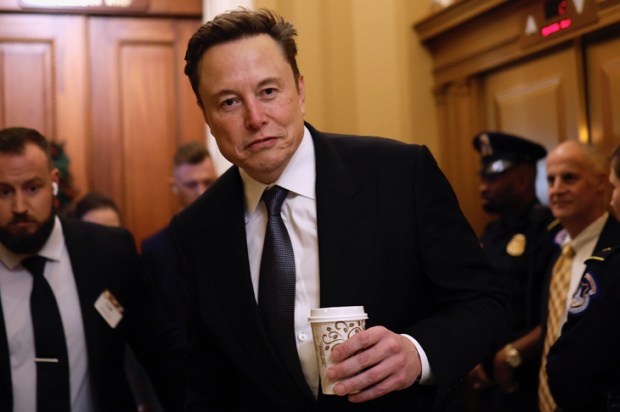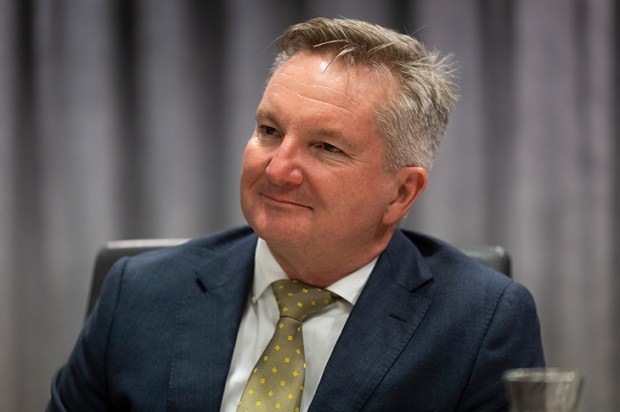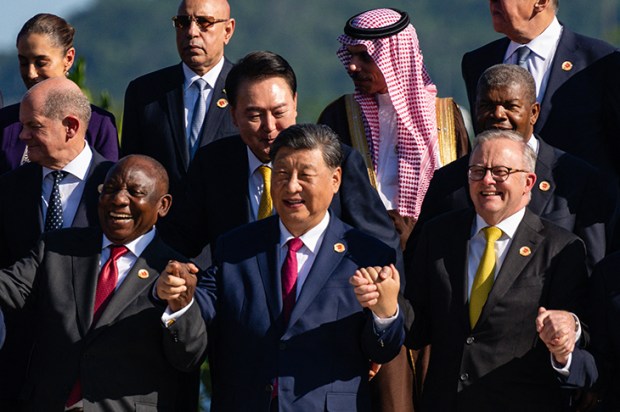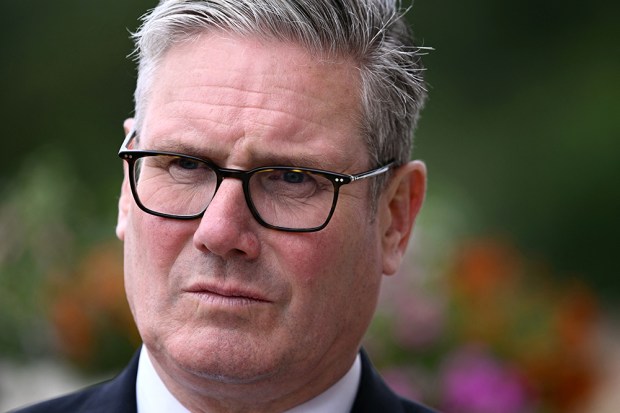Australia is undergoing a quiet but radical economic transformation. Not led by the invisible hand of the market, but by the clenched fist of a political class intent on merging government, corporate and union power into a single, self-reinforcing bloc. This is the new trinity of Australian economic mismanagement: big government, big business and big labour, the three horsemen of our looming fiscal apocalypse.
At the centre of this managed decline are Prime Minister Anthony Albanese and Treasurer Jim Chalmers, men whose rhetorical abilities conceal a Peronist agenda.
Particularly in Chalmers’ case, he presides over a creeping system of state monopoly capitalism, where markets are no longer free but are massaged, massaged again, and ultimately captured.
‘State monopoly capitalism’ is a concept rooted in Marxist-Leninist theory which serves as an apt descriptor for Albanese’s Australia – a system in which state power and corporate dominance no longer check one another but operate in seamless collusion.
The Treasurer may call it ‘values-based capitalism’, but for those paying attention, it is simply cronyism with a progressive emphasis.
Nothing better illustrates this agenda than the government’s much-vaunted Productivity Summit, a forum that began with technocratic fanfare and degenerated into a tax-hike jamboree. What should have been a national strategy session on wealth creation quickly morphed into a Peronist-lite exercise in wealth redistribution. Productivity is out; punitive tax increases are in. Unless, of course, you are part of the governing elite or a well-aligned corporate partner.
For much of its modern history, Australia operated under a mixed-market model. The state regulated but largely trusted the market to generate prosperity. No longer. Since the election of the Albanese government in 2022, the pace of state expansion has accelerated dramatically. The result has been a deeply interventionist regime that picks winners, bankrolls favoured industries and blurs the line between public interest and private profit, as long as both answer to Canberra.
The slogans may vary, but the substance remains the same – a centralised economy governed not by open competition, but by closed-door deals, ministerial discretion, and strategic patronage.
Nowhere is dysfunction more evident than in the so-called ‘clean energy transition’. Instead of fostering market-led innovation, the government has channelled billions in taxpayer subsidies to a narrow clique of renewable energy conglomerates. The outcome is not an energy revolution but a rent-seeker’s paradise where sprawling corporate interests feast on public funds while ordinary households grapple with soaring power bills.
To be clear, this debacle did not originate solely under the current government. The groundwork was laid by successive Coalition administrations. It was the Howard government that legislated the original Renewable Energy Target and imposed a ban on nuclear energy generation – effectively eliminating the most stable zero-emissions alternative. And it was the Abbott government that introduced the so-called Safeguard Mechanism, a regulatory sledgehammer that remains firmly in place to further penalise carbon dioxide emitters.
Such patterns of central economic planning infect other sectors. And the rhetoric is always the same – national interest, strategic investment, collaborative governance. In practice, though, it is the consolidation of capital and influence in the hands of those already closest to power. The ‘co-investment’ Chalmers celebrates is little more than the public underwriting of private monopolies.
And yet, throughout this managed retreat from free enterprise, Chalmers drones on with a kind of anaesthetising optimism. His speeches are exercises in abstract platitudes, littered with references to ‘resilience’, ‘sustainability’ and ‘collaboration’. Listen long enough, and you will notice something uncanny – he manages to speak at length without ever actually saying anything. He is the high priest of managerialism, profound in tone, hollow in content.
Chalmers’ genius lies not in economic insight but in performative incompetence. He is fluent in the language of technocratic consensus. In this regard, he is the ideal Treasurer for a government that governs by focus groups.
And yet, Chalmers’ vacuity is mistaken by much of the press gallery as sophistication. The more jargon-laden his pronouncements, the more he is praised as a top ‘performer’ delivering ‘serious economic thinking’. In truth, Chalmers’ political economy is little more than bureaucratic Yes, Minister gift-wrapped in the prose of progress. He does not reform capitalism. He anaesthetises it.
All this would be troubling enough if the results were benign. They are not. While Argentina under Javier Milei shrugs off Peronism, Australia seems determined to import it under Albanese and Chalmers. While Buenos Aires cuts inflation and attracts investment, Canberra doubles down on regulation, taxation and subsidies, smothering innovation while pretending to nurture it.
Australia is not drifting but accelerating towards an economy where government and monopoly capital form a unified ruling class. The state protects and funds incumbent industries; those industries, in turn, shape the rules of the game. The result is a rigid, over-governed, under-performing economy that serves the interests of insiders, not citizens.
Beneath the slogans lies a structure that rewards conformity, centralisation and compliance. It is a system in which political alignment trumps market efficiency, and where economic success is measured not by productivity or competition, but by how closely a corporate strategy aligns with the prevailing ideology of the Treasury benches.
What Australia needs now is not another white paper or roundtable, but a clean break – a return to real markets, real accountability, and a clear separation between public power and private enterprise. It needs a government brave enough to decentralise economic decision-making, unshackle enterprise, and stop bribing its friends with our money.
It also needs a credible opposition with the spine to call this what it is – a corporatist racket masquerading as modern governance. Sadly, we hear little more than timid echoes and marginal tweaks from the Coalition. Where is the alternative vision? Where is the defence of enterprise, competition, and individual economic agency? Where is the party of small government?
Because until someone is willing to say clearly that the Albanese government is not just wrong, but dangerously wrong, we will continue this march toward state monopoly capitalism led by a Treasurer who says nothing, says it well, and leaves the country worse off with every passing day.
Got something to add? Join the discussion and comment below.
Dimitri Burshtein is a principal at Eminence Advisory. Peter Swan AO is professor of finance at the UNSW-Sydney Business School.
You might disagree with half of it, but you’ll enjoy reading all of it. Try your first month for free, then just $2 a week for the remainder of your first year.













